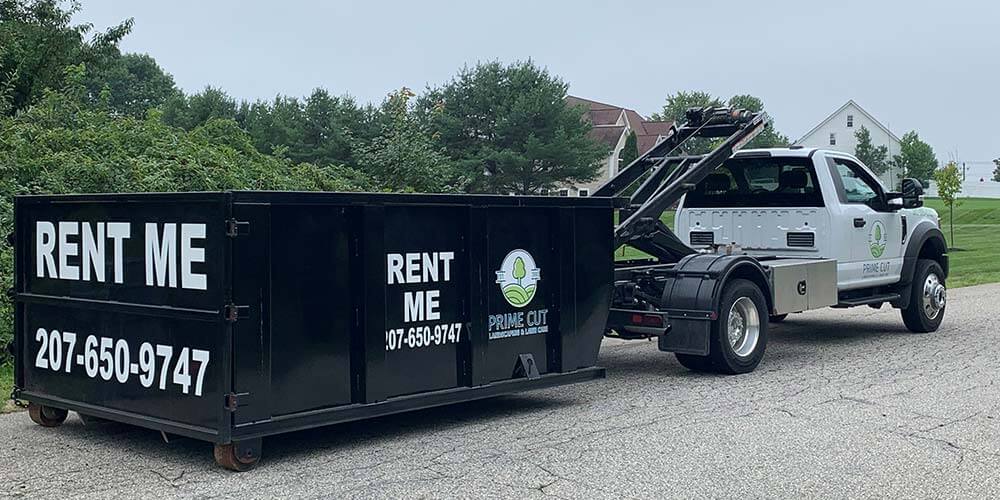When thinking about dumpster rental, numerous key factors entered play to assure reliable, economical, and compliant garbage disposal. Identifying the right dumpster size, recognizing the kinds of particles that can be thrown away, and ensuring correct placement and ease of access are all important. Furthermore, rental period and scheduling, weight and volume capability limitations, compliance with local regulations, and comparing rental costs and services are essential factors to consider. By thoroughly reviewing these elements, you can optimize your waste monitoring process, reduce costs, and avoid possible challenges; currently, check out each of these essential factors to consider in even more detail to make an educated decision.
Determining the Right Dumpster Size
When taking on a job that involves garbage disposal, one crucial facet to contemplate is the dumpster size The best dumpster size warranties efficient waste management, conserving time, money, and lessening environmental impact.
A dumpster that is as well little can cause frequent emptying, leading to additional costs and disturbances to the project. On the various other hand, a dumpster that is also large can be a waste of resources and space.
To identify the right dumpster dimension, take into consideration the project's range, kind of materials to be thrown away, and the available area for the dumpster. A general guideline is to approximate one https://canvas.instructure.com/eportfolios/3257024/piedmonttriaddumpsters/What_to_Know_Before_Renting_a_Dumpster cubic yard of dumpster area for every 3-4 lots of waste.
It is additionally essential to get in touch with local regulations and the dumpster rental company for particular size requirements and constraints. By selecting the ideal dumpster dimension, you can guarantee a smooth and environmentally friendly waste disposal process.
Types of Particles You Can Dispose
The type of particles you can take care of in a dumpster rental is a crucial factor to consider to ensure a smooth waste monitoring process Different dumpsters are designed to deal with particular types of waste, and understanding what can and can not be thrown away is vital.
Construction and demolition jobs commonly create heavy materials like concrete, asphalt, and roofing products, which call for specific dumpsters.
Household clean-ups, on the other hand, may include taking care of furniture, appliances, and general trash, which can be managed by basic dumpsters.
Yard waste, such as tree trimmings and leaves, may likewise be taken care of in marked dumpsters.
However, hazardous materials like batteries, electronics, and chemicals need special delivery and must not be placed in a typical dumpster.
Additionally, some dumpsters might have details weight limits or limitations on materials like dirt, rocks, and heavy machinery.
Understanding the sorts of particles you can dispose of will ensure you select the right dumpster for your job and avoid any kind of potential problems or fines

Dumpster Placement and Accessibility
Proper dumpster positioning and accessibility are important aspects to consider when leasing a dumpster, as they can significantly impact the efficiency and safety of your waste monitoring process
A well-placed dumpster can streamline your cleanup efforts, reduce labor costs, and prevent mishaps. On the other hand, bad placement can result in increased costs, reduced performance, and also injuries.
When determining the excellent positioning for your dumpster, consider the following key variables:
- Confirm the dumpster is situated on a level, firm surface area to stop it from shifting or tipping over. Choose an area that is easily obtainable for both the delivery van and your team, decreasing the danger of damages to bordering property. Place the dumpster close to the waste generation area to minimize transportation distances and labor costs. Avoid placing the dumpster near overhead challenges, such as high-voltage line or tree branches, to verify safe and efficient loading and unloading
Rental Duration and Scheduling
Once the ideal dumpster placement has actually been identified, interest can move to the logistics of the rental itself. A vital facet of this is the rental period, which can differ relying on the project's extent and timeline.
It's important to establish the length of time the dumpster will be needed, as this will certainly influence the overall cost of the rental. Some tasks may call for a temporary leasing, while others may necessitate a longer period.
When organizing the rental, it's essential to consider the delivery and pickup dates Confirm that the dumpster is provided at a practical time, permitting effective loading and lessening disruptions to the project.
Similarly, schedule the pick-up day when the job is full, or the dumpster is complete, to stay clear of additional fees Credible dumpster rental companies will certainly collaborate with you to fit your scheduling needs, supplying adaptability and convenience.
Weight and Volume Ability Limits
Accommodating diverse job needs, dumpster rental firms use containers with varying weight and volume capability limits Recognizing these limits is essential to guarantee a successful and problem-free rental experience
- Weight capability limits differ from 1-10 loads, depending upon the dumpster size and type, and are normally determined by the weight of the debris inside the container. Volume capacity restrictions are normally determined in cubic backyards and array from 10-40 lawns, with bigger containers accommodating more waste. Choosing the proper weight and volume ability restrictions for your task prevents overloading, decreases the danger of damages to the container or surrounding residential or commercial property, and guarantees compliance with security regulations. Proper preparation and evaluation of waste volume and weight additionally aid minimize the requirement for numerous pickups or added rental costs, leading to cost savings and an extra effective job timeline.
Compliance With Local Regulations
Local regulatory compliance is a crucial aspect of dumpster rental, as municipalities and local governments impose specific regulations and restrictions on waste disposal.
Failure to abide can cause fines, penalties, and even project delays. It is necessary to study and recognize the regional policies regulating dumpster rental in your area, including permits, licenses, and zoning restrictions
Some districts have particular regulations regarding dumpster placement, dimension, and type. As an example, some areas might require dumpsters to be put on private property, while others may permit them to be placed on public streets.
Additionally, some cities have policies around the types of materials that can be gotten rid of in dumpsters, such as hazardous waste or construction materials.
To determine compliance, it is crucial to work with a credible dumpster rental firm that is familiar with regional regulations.

They can direct you via the process, acquire required permits, and guarantee that the dumpster is positioned and used based on neighborhood laws.
Comparing Rental Expenses and Services
- What is the total cost of the rental, consisting of delivery, pickup, and disposal fees? What sizes and types of dumpsters are offered, and which one is best for your project? Are there any type of additional solutions offered, such as same-day shipment or versatile rental periods? What are the terms of the contract, including the rental period and any type of penalties for early termination?